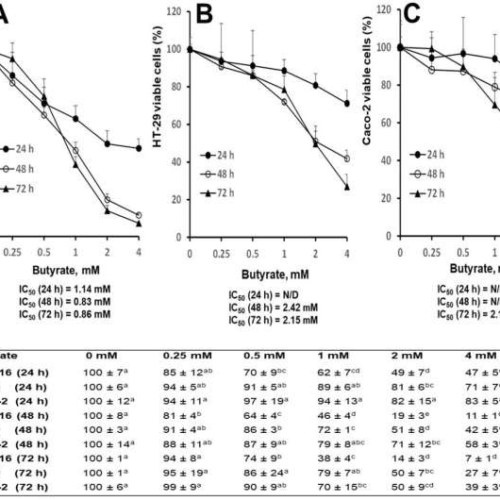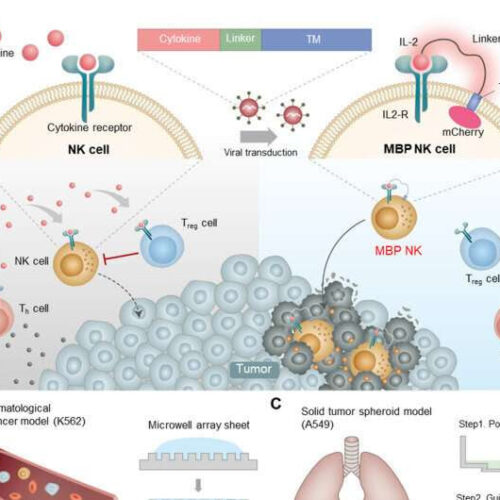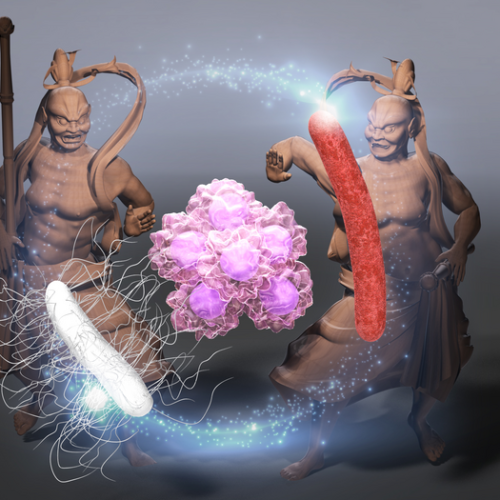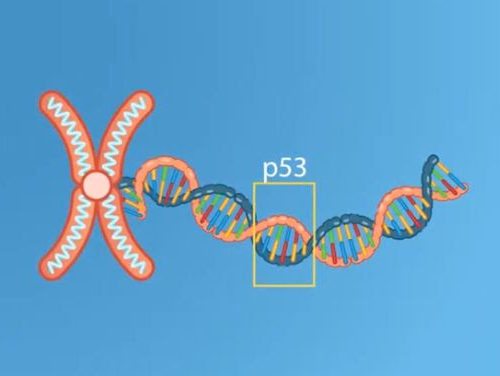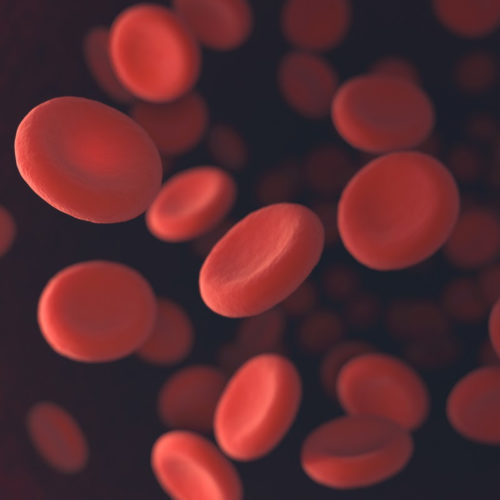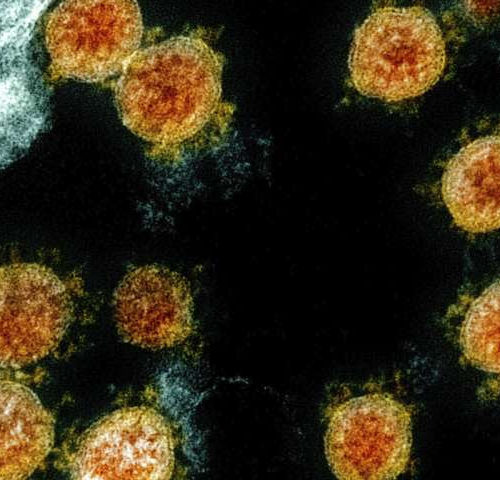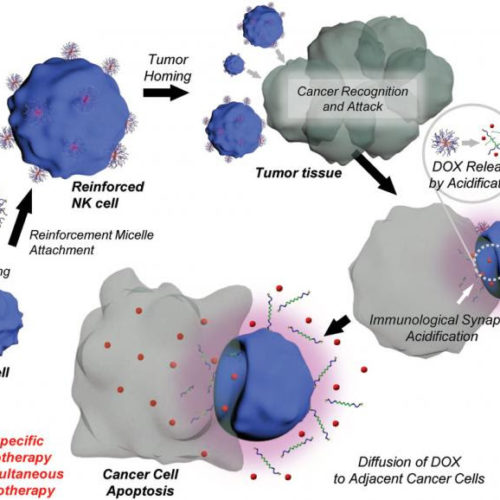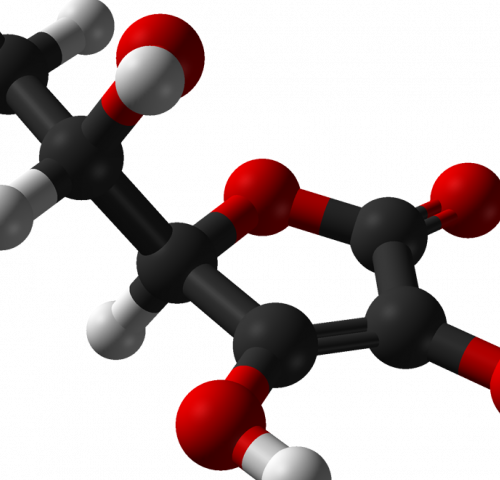Pamela Goodwin has received hundreds of emails from patients asking if they should take a cheap, readily available drug, metformin, to treat their cancer. It’s a fair question: Metformin, commonly used to treat diabetes, has been investigated for treating a range of cancer types in thousands of studies on laboratory cells, animals, and people. But Goodwin, an epidemiologist...
Tag: <span>anticancer</span>
Scientists find butyrate’s possible anticancer potential is cell-type specific
by Maribel Alonso, Agricultural Research Service Distinct effects of butyrate on colon cancer cell lines (A) HCT116, (B) HT-29, (C) Caco-2 cell growth curves for 24, 48, and 72 h, (D) data for cell growth curve (A–C). The “N/D” stands for “not detectable”. Letters that are not shared between concentration group means are significantly different by...
A new natural killer cell therapy product with promising anticancer effects
by DGIST (Daegu Gyeongbuk Institute of Science and Technology) Schematic diagram of the MBP technology in NK cells and expected role in the tumor site. (A) Schematic illustration of cytokine engineered MBP NK cells and functional difference between parental NK-92 cells and MBP NK cells. Because of self-stimulation via MBP IL-2, MBP NK cells can...
Researchers show that using a tumor’s own bacteria is a promising anticancer therapy
A novel approach to treating cancer uses bacteria that naturally reside within tumors to trigger a powerful anticancer immune responsePeer-Reviewed Publication JAPAN ADVANCED INSTITUTE OF SCIENCE AND TECHNOLOGY IMAGE: A BACTERIAL CONSORTIUM CONSISTING OF A-GYO, UN-GYO, AND AUN HAS HIGH ANTICANCER EFFICACY, TRIGGERING THE IMMUNE SYSTEM TO ATTACK TUMOR CELLS. CREDIT: EIJIRO MIYAKO FROM JAIST....
T cells engineered to target senescence
Senescence is a hallmark of cellular ageing and contributes to many diseases. A new method enabling immune cells to target senescent cells might offer improved therapeutic options. Senescence is a form of cellular stress response. In some circumstances it can be harmful, and efforts are under way to develop therapies that target senescent cells. Writing...
Newly Synthesized Fungal Compound Can Switch on a Self-destruct Button for Cancer
Leading organic chemists synthesize fungal molecule capable of reactivating the self-destruct gene in aggressive cancer cells. Cancers cells use a special technique to propagate; they delete their “programmed death” gene through mutation, “forget” to die when their lifetime is over and continue to grow instead. A research team from Tokyo University of Science has developed...
New synthetic red blood cells are even better than the real thing
By Michael Irving June 03, 2020 Researchers have created synthetic red blood cells (RBCs) that have all of the useful properties of the real thing, plus a few new tricks. These new cells could be put to work carrying oxygen or drugs through the body, sensing toxins, and other tasks. It goes without saying that...
Cancer, coronavirus are a dangerous mix, new studies find
by Marilynn Marchione This electron microscope image made available and color-enhanced by the National Institute of Allergy and Infectious Diseases Integrated Research Facility in Fort Detrick, Md., shows Novel Coronavirus SARS-CoV-2 virus particles, orange, isolated from a patient. Research released on Thursday, May 28, 2020 shows how dangerous the coronavirus is for current and former...
Assassin cells armed with anticancer drugs kill cancer masses
There are immune cells in our bodies that directly destroy infected or cancer cells – they are called natural killer cells. Recently, a POSTECH research team has developed an integrative cancer therapy using adoptive natural killer cell therapy and chemotherapy. A research team led by Professor Won Jong Kim of POSTECH’s Department of Chemistry developed...
A combo of fasting plus vitamin C is effective for hard-to-treat cancers, study shows
by University of Southern California Scientists from USC and the IFOM Cancer Institute in Milan have found that a fasting-mimicking diet could be more effective at treating some types of cancer when combined with vitamin C. In studies on mice, researchers found that the combination delayed tumor progression in multiple mouse models of colorectal cancer;...
- 1
- 2

